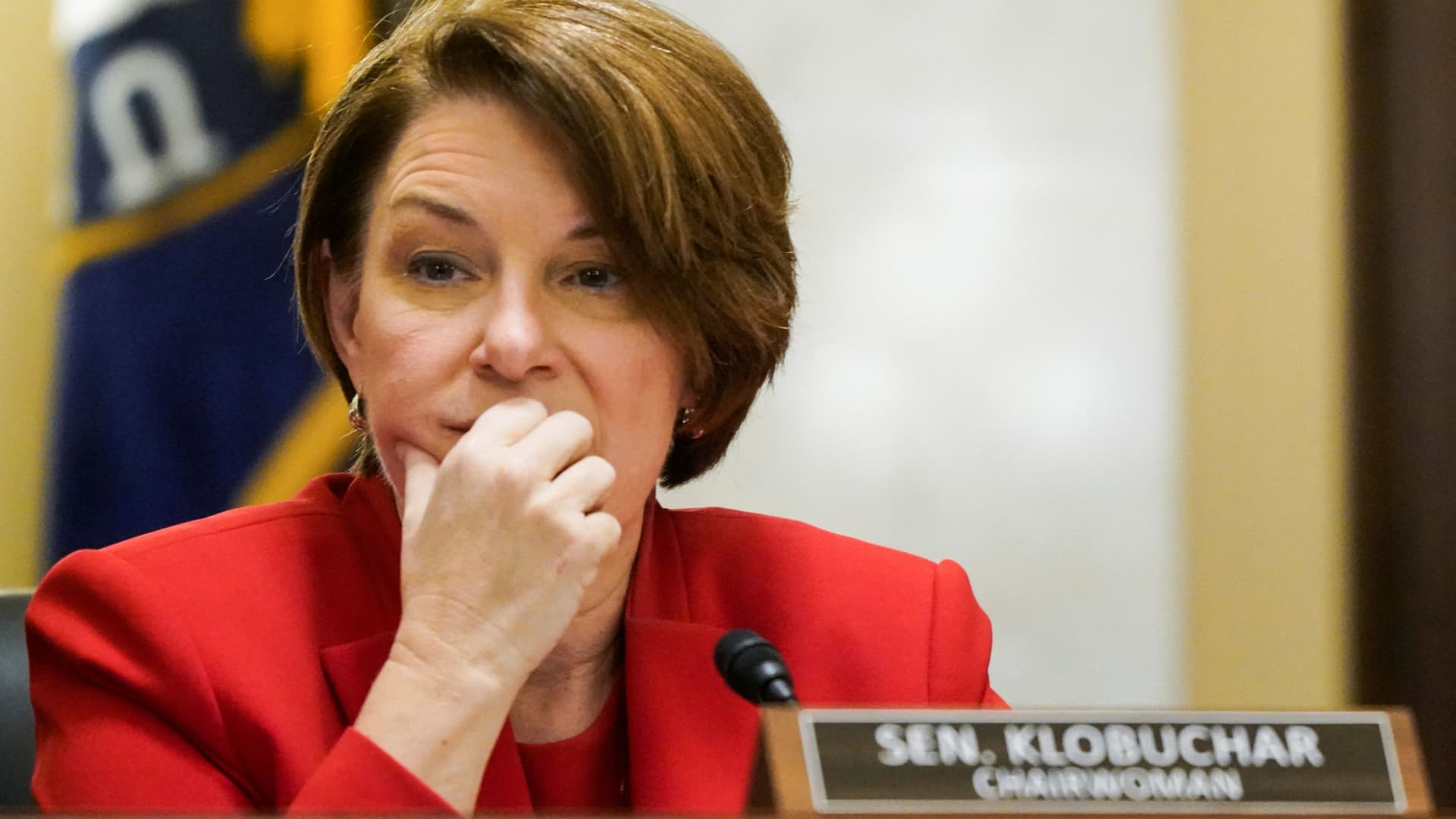Senate won’t vote on tech antitrust bill before summer recess, Klobuchar says


The most promising tech antitrust bill to move through Congress won’t get a vote before the summer recess, its lead sponsor, Sen. Amy Klobuchar, D-Minn., said in a recent interview on MSNBC’s “Symone.”
Klobuchar said on Saturday she talked with Senate Majority Leader Chuck Schumer, D-N.Y., last week about having a vote on the American Innovation and Choice Online Act in the fall.
“We’re not going to be able to do it this week, obviously, with the major vote we’re having on the Inflation Reduction Act,” she said.
Klobuchar’s bill, co-sponsored by Senate Judiciary Committee Ranking Member Chuck Grassley, R-Iowa, would prohibit dominant tech platforms from advantaging their own products over those of rivals that rely on their services. That could have a significant impact on how companies such as Amazon, Apple and Google display search results on their marketplaces, for example.
The bill’s champions say the reform is necessary to rebalance the power in digital markets and allow newer innovators to thrive. But critics, including the tech companies, have argued the bill would worsen the consumer experience by potentially weakening security standards and the platforms’ ability to kick harmful products off their marketplaces. Klobuchar and other backers of the bill have denied that’s the case.
Schumer previously said he aimed to put the bill to a vote by early summer, Axios was first to report in May. But while Klobuchar and others have expressed confidence the bill would receive a filibuster-proof majority if brought to the Senate floor, Schumer had yet to schedule the vote by the Senate’s final week in session before the August recess.
The bill could get another shot later this year after the midterm elections, though that leaves little time to get it done. Many of the bill’s supporters believe it would be much harder to pass if Republicans gain control of the House, as many pollsters predict they will. And proponents fear the longer it takes to put the bill to a vote, the more time tech lobbyists will have to sow seeds of doubt in the minds of lawmakers.
This post has been syndicated from a third-party source. View the original article here.




